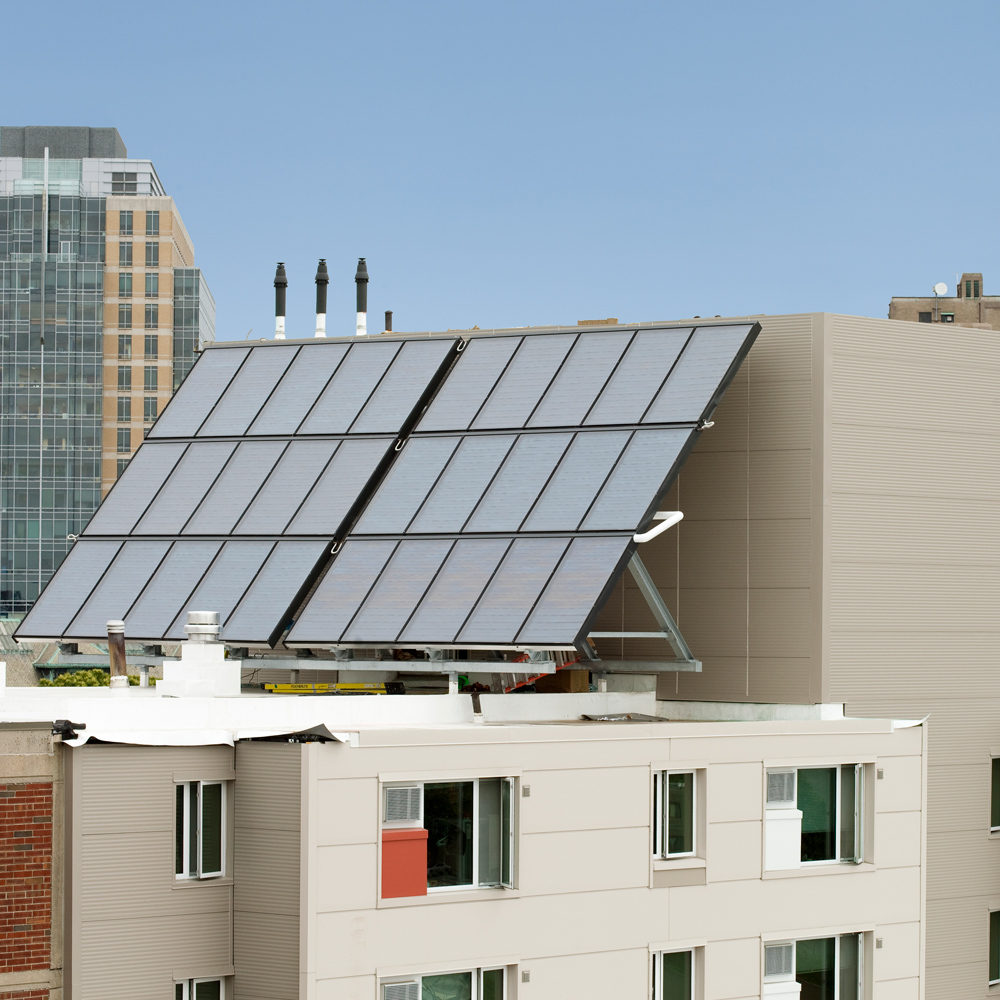
Invested in Impact
Discover how WinnCompanies is making a positive difference for our residents, clients, team members and the communities we serve in our new 2025 Impact Report.
Learn MoreU.S. Department of Energy Awards $6.56 Million to WinnCompanies for Technologies to Reduce Energy Use in Massachusetts Apartment Buildings

BOSTON (Oct. 13, 2021) – WinnCompanies has been awarded a $6.56 million grant from the U.S. Department of Energy (DOE) to work with Massachusetts’ housing and energy agencies on developing state-of-the-art clean technologies to dramatically improve energy efficiency in existing public and private apartment communities.
With the funding announced today by DOE , the project will focus on new energy efficiency innovations at up to 20 apartment communities, representing over 2,000 homes, selected from two large affordable and mixed income housing portfolios located in Massachusetts.
WinnCompanies’ energy services arm, formally known as Open Market ESCO, was one of 10 organizations in the United States to receive a grant to pursue advances in “grid-interactive efficient buildings” (GEBs) — buildings that interact with the electrical grid to optimize their energy consumption, substantially decreasing carbon emissions and providing a model for reducing the building sector’s contribution to the climate crisis.
“Thanks to this DOE initiative, historically underserved communities will have a unique opportunity to become testing grounds for innovation and carbon reductions through a variety of new distributed energy resources (DERs),” said Darien Crimmin, vice president of Energy & Sustainability for WinnCompanies. “This project will focus on affordable and mixed-income housing communities to ensure that connected, resilient, clean energy technologies are accessible and designed to serve all of society.”
The project team, including the Fraunhofer USA Center for Manufacturing Innovation CMI, one of the world’s leading applied research organizations, will evaluate multifamily properties across Massachusetts, particularly focused on the Merrimack Valley region, including Lowell and Lawrence. The project will serve a diverse range of multifamily properties, including certain state-assisted public housing communities, with the greatest opportunity for innovative GEB strategies.
The four-year initiative is expected to be implemented in three phases. The first 18 months will focus on project planning, property evaluation, design, and financing. It will be followed by construction, monitoring, and evaluation. The project will implement new technologies and integrate numerous vendors and approaches, requiring a sophisticated level of up-front planning and design, including collaboration with key stakeholders such as utility providers and residents.
“With support from DOE, we look forward to partnering with the Massachusetts Department of Housing & Community Development (DHCD) and the Department of Energy Resources (DOER) to demonstrate how GEBs can make multifamily rental communities more resilient and sustainable, translating to reduced costs, more stable housing, and a better environment for our residents,” said Christina McPike, director of Energy & Sustainability at WinnCompanies.
The DOE program seeks projects that demonstrate how groups of buildings when combined with other types of DERs, such as electric vehicle (EV) charging and photovoltaic (PV) generation, can reliably and cost‐effectively serve as grid assets by strategically deploying efficiency and demand flexibility. Grid interactive efficient buildings use smart controls, sensors, and analytics to communicate with the grid, reducing the energy required during periods of peak demand. This capability optimizes the comfort of building occupants, lowers utility bills, and reduces grid system costs.
Technologies like battery storage and grid-interactive demand response are critical to saving energy, reducing carbon emissions, and increasing resiliency. Because these technologies are changing rapidly, pilot programs supported by the federal DOE and individual states are essential to bringing these new technologies to market and creating the roadmap for mass-scale deployment.
A recent DOE study estimated that by 2030, GEBs could save up to $18 billion per year in power system costs and cut 80 million tons of carbon emissions each year. That is more than the annual emissions of 50 medium- sized coal plants or 17 million cars. DOE’s first two connected communities in Alabama and Georgia have already demonstrated this potential by using approximately 42-44% less energy than today’s average all-electric home.
Formed in 2009, Open Market ESCO executes on WinnCompanies’ energy and sustainability commitments for multifamily properties and facilitates public-private collaboration to catalyze clean energy solutions, advance energy project financing and accelerate innovation. Its key achievements include making WinnCompanies a national leader in deploying community solar for affordable housing and reducing energy usage in more than 10,000 apartments in the Northeast and Mid-Atlantic regions.
